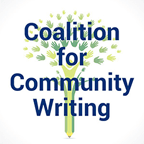Journal Policies
Contents
- Philosophy of Community Literacy Journal
- Who Can Submit?
- General Submission Rules
- Formatting Requirements
- Rights for Authors and FIU Digital Commons
Philosophy of Community Literacy Journal
In our commitment to supporting not only seasoned scholars, but also community-based writers and rising scholars, we have adopted a guiding editorial philosophy of rigorous generosity. The basic principle of rigorous generosity is that if authors are submitting compelling, groundbreaking work that fits the mission of the journal, we want to work with them, even if that means that the process of moving from initial submission to publication-ready article takes time and potentially multiple revisions.For more information, please see Community Literacy Journal Aims and Scope page.
Who Can Submit?
Anyone may submit an original article to be considered for publication in Community Literacy Journal provided he or she owns the copyright to the work being submitted or is authorized by the copyright owner or owners to submit the article. Authors are the initial owners of the copyrights to their works (an exception in the non-academic world to this might exist if the authors have, as a condition of employment, agreed to transfer copyright to their employer).
General Submission Rules
Submitted articles cannot have been previously published, nor be forthcoming in an archival journal or book (print or electronic). Please note: By submitting material to Community Literacy Journal, the author is stipulating that the material is not currently under review at another journal (electronic or print) and that he or she will not submit the material to another journal (electronic or print) until the completion of the editorial decision process at Community Literacy Journal. If you have concerns about the submission terms for Community Literacy Journal, please contact the editors.
Formatting Requirements
The MLA Style, 8th ed.
- We discourage the use of End Notes, preferring integration of information within the article's text; when absolutely unavoidable, use End Notes, not footnotes
- Images need to be at least 300 DPI for printing
- Images will need some form of attribution and acknowledgment
- Use pseudonyms and/or anonymous information to protect the privacy of your research sources
- Minimize the use of parentheses and parenthetical phrases
- Have permission to quote from students’ or community members’ work.
Rights for Authors and FIU Digital Commons
This journal permits and encourages authors to post items submitted to the journal on personal websites or institutional repositories both prior to and after publication, while providing bibliographic details that credit, if applicable, its publication in this journal under a Creative Commons Attribution NonCommercial-NoDerivs license (CC-BY-NC-ND).
Under the terms of the CC-BY-NC-ND license, authors retain copyright ownership of the work, but they give explicit permission for others to copy and redistribute the material in any medium or format for non commercial purposes, as long as the original source and author(s) are properly cited (i.e. a complete bibliographic citation and link to the Community Literacy Journal website)Attribution and Usage Policies
Reproduction, posting, transmission or other distribution or use of the article or any material therein, in any medium as permitted by Creative Commons Attribution NonCommercial-NoDerivs license (CC-BY-NC-ND). Under the terms of the CC-BY-NC-ND license, authors retain copyright ownership of the work, but they give explicit permission for others to copy and redistribute the material in any medium or format for non commercial purposes, as long as the original source and author(s) are properly cited (i.e. a complete bibliographic citation and link to the Community Literacy Journal website) FIU Digital Commons, requires credit to FIU Digital Commons as copyright holder (e.g., FIU Digital Commons © 2025).
Personal-use Exceptions
The following uses are always permitted to the author(s) and do not require further permission from FIU Digital Commons provided the author does not alter the format or content of the articles, including the copyright notification:
- Storage and back-up of the article on the author's computer(s) and digital media (e.g., diskettes, back-up servers, Zip disks, etc.), provided that the article stored on these computers and media is not readily accessible by persons other than the author(s);
- Posting of the article on the author(s) personal website, provided that the website is non-commercial;
- Posting of the article on the internet as part of a non-commercial open access institutional repository or other non-commercial open access publication site affiliated with the author(s)'s place of employment (e.g., a Phrenology professor at the University of Southern North Dakota can have her article appear in the University of Southern North Dakota's Department of Phrenology online publication series); and
- Posting of the article on a non-commercial course website for a course being taught by the author at the university or college employing the author.
People seeking an exception, or who have questions about use, should contact the editors.
General Terms and Conditions of Use
Users of the FIU Digital Commons website and/or software agree not to misuse the FIU Digital Commons service or software in any way.
The failure of FIU Digital Commons to exercise or enforce any right or provision in the policies or the Submission Agreement does not constitute a waiver of such right or provision. If any term of the Submission Agreement or these policies is found to be invalid, the parties nevertheless agree that the court should endeavor to give effect to the parties' intentions as reflected in the provision, and the other provisions of the Submission Agreement and these policies remain in full force and effect. These policies and the Submission Agreement constitute the entire agreement between FIU Digital Commons and the Author(s) regarding submission of the Article.

